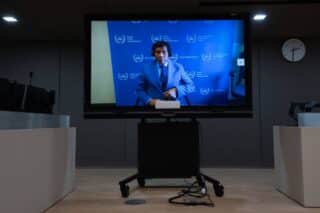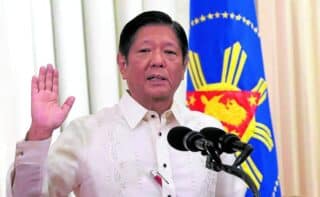MANILA, Philippines—Business executive Manuel V. Pangilinan remains mum on talks that he and a rival group are in to acquire the nation’s flag carrier, Philippine Airlines (PAL).
In a recent chance interview, the Philippine Long Distance Telephone Co. (PLDT) chairman neither confirmed nor denied that he was in discussions with any group for a majority stake in the airline.
“I’ve said all I need to say on the matter,” Pangilinan told reporters.
Aside from Pangilinan, the only other group said to be eyeing PAL was diversified conglomerate San Miguel Corp.
Earlier this month, PAL chairman Lucio Tan, one of the country’s wealthiest individuals, said he was willing to sell his majority stake in the company “for the right price.”
Tan was also quoted to have said that both Pangilinan and SMC president Ramon S. Ang were his “friends.”
The company’s management, however, later clarified that Tan was merely making a rhetorical remark on the possibility of letting go the financially troubled carrier.
In a previous disclosure to the Philippine Stock Exchange (PSE), San Miguel confirmed that it had been invited to participate in the “refleeting” of PAL’s fleet of planes, although officials were mum on whether this would involve the infusion of fresh equity resulting in a change in control.
If Pangilinan were to secure a controlling stake in PAL, industry watchers say this may prove to be a difficult situation for the group since the Gokongwei family that owns the airline’s chief rival, Cebu Pacific, also owns a substantial stake in PLDT.
PAL, which used to monopolize in the country’s air travel, has struggled to keep up with changing industry dynamics that were a result of the industry’s liberalization instituted by the Ramos administration in the 1990s.
Because of its “full service” business model, PAL has been unable to match the low ticket prices offered by budget carriers like Cebu Pacific.
Due to soaring fuel prices, PAL reported a $39-million net loss at the end of September 2011, the end of the first half of the airline’s April to March fiscal year. This was a reversal from the $26.7-million profit the airline booked a year earlier.



